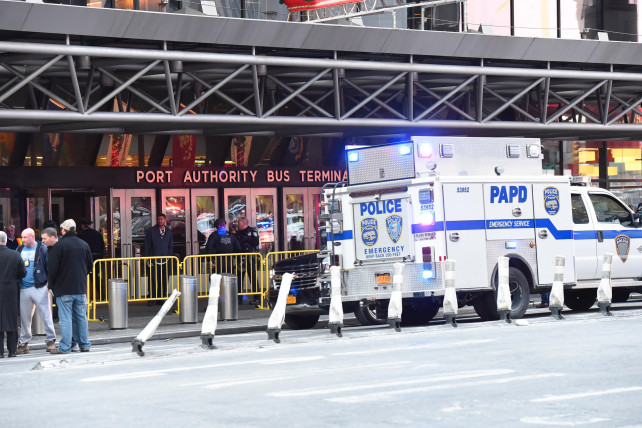Six Questions for Tara McKelvey on Detainee Abuse
Courtesy Ken Silverstein
Tara McKelvey is the author of the new book Monstering: Inside America’s Policy of Secret Interrogations and Torture in the Terror War, which tells the story of the Abu Ghraib scandal and, more broadly, examines the pattern of detainee abuse in Iraq. McKelvey, a senior editor at The American Prospect and a research fellow at the NYU School of Law’s Center on Law and Security, lives in Washington, D.C. I recently asked her six questions about what she learned while researching her book.
1. The general story of the abuses at Abu Ghraib has by now been well covered. What has the media missed?
The media only focused on the photographs. They missed the fact that the abuse was systematic and that the worst things were not even shown in the pictures. That’s what my book is about: what happened beyond the frame of the Abu Ghraib photos. Thousands of detainees have gone through U.S.-run facilities in Iraq, but thousands more—anyone held for less than fourteen days—were never registered or tracked. Human-rights reports and interviews I conducted show that some of the worst abuses took place at short-term facilities—a police station in Samarra, a school gymnasium, a trailer, and places like that, where individuals were held for up to two weeks. It’s also important to remember that reports from the International Committee of the Red Cross, as well as numerous military documents, show that 70 to 90 percent of the detainees had no information that would have been useful to the troops.
2. Who is ultimately responsible for the abuses?
If there’s a smoking gun, it’s in the hands of John C. Yoo. He worked at the Justice Department’s Office of Legal Counsel, and he’s the guy behind the August 1, 2002, memo that said interrogators could do what they wanted as long as the intensity of pain inflicted was less than “that which accompany serious physical injury such as death or organ failure.†It created conditions that allowed for almost any sort of physical abuse. So guys like Yoo and Timothy Flanagan, who was deputy White House counsel under Alberto R. Gonzales, discussed techniques like stress positions and sleep deprivation that were approved for high-level Al Qaeda suspects—and those techniques were used on Iraqi civilians. I had a heartfelt conversation with Flanagan and told him what I had heard from Iraqis: that these techniques had been used on men, women and children in Iraq. He feels bad about it; I know he does. But the fact is that he and Yoo and some of these other people from the best law schools and universities in this country were the ones who came up with the legal definitions that allowed for the abuse to happen.
“When [Lynndie England] told me she’d quit her job over the conditions at the plant, I was surprised. She had stood up to what she thought was wrong.†3. What was Donald Rumsfeld’s role?
Rumsfeld has had a very lackadaisical attitude towards the Geneva Conventions. On February 8, 2002, he said, “The reality is that the set of facts that exist today with respect to Al Qaeda and Taliban were not necessarily the kinds of facts that were considered when the Geneva Conventions were fashioned.†On May 4 of 2004, after the pictures from Abu Ghraib were published, he told a journalist that the Geneva Conventions “did not precisely apply†in Iraq. There has also been testimony from people who say Rumsfeld got nightly briefings about what was gathered during interrogations.
4. Have those guilty of detainee abuse been held accountable?
More than 260 soldiers have faced punishment for detainee-related incidents since October 2001. Of those, nine individuals, all except one below the rank of captain, have been sentenced to time behind bars. Keep in mind, that’s just the military; meanwhile, there are about 100,000 contractors in Iraq, almost as many as there are troops. But only one contractor has been punished for a detainee-related crime, and that was in Afghanistan. Not a single contractor in Iraq has been punished. I doubt all those contractors are angels; we know, for instance, that several were implicated in the Abu Ghraib scandal—but those cases never went anywhere. This is not just a prison scandal. It’s a huge blow to America’s image and it’s something we’ll be dealing with for generations.
5. What do you think of former CIA director George Tenet’s recent comments in which he defended the use of tough tactics against detainees?
Tenet has said in interviews that we didn’t employ torture, that everything was authorized, and that the attorney general told us the techniques did not amount to torture. This goes back to John Yoo, who along with others broadened the definition of what was allowable. Some of the stuff, like “stress positions,†seems benign. But it covers a lot of ground. It means you can be kept crouching and not allowed to move for 45 minutes, but then they can move you into another stress position. There’s one stress position, called a “Palestinian Hanging,†which was apparently pretty common at Abu Ghraib. Your arms are pulled behind your back, and you’re hung from your arms. I interviewed a ghost detainee who was put in that position and he said it was incredibly painful. One detainee, al-Jamadi, died after being put in that position. We don’t know if these techniques are still allowed. Officially they say “no,†but we have no idea.
“This is not just a prison scandal. It’s a huge blow to America’s image and it’s something we’ll be dealing with for generations.â€6. You got an exclusive print interview with Lynndie England. What was your impression of her?
Part of her defense was that she was a compliant personality but in fact, as I discovered, she’d been a whistleblower. She had worked at a chicken processing plant in Moorefield, West Virginia, and had walked off the job to protest lousy assembly line practices. Less than a year later, a PETA investigator went into the plant undercover and filmed incredibly horrific acts of animal abuse. It made it into the national media, which called it a “mini Abu Ghraib.†When she told me she’d quit her job over the conditions at the plant, I was surprised. She had stood up to what she thought was wrong. Lynndie England—and all of the people at Abu Ghraib—had the option to say “no†to the abuse. There was a combination of events that allowed the detainee abuses to happen, it wasn’t just administration policy or Lynndie’s psychopathic boyfriend, or any one thing. I was so shocked about the abuse when I first heard about it from Iraqis, and I wondered how such horrible things could happen. But by the time I’d finished the book and saw how everything had come together, the abuse seemed almost inevitable.
9-21













2007
1,007 views
views
0
comments